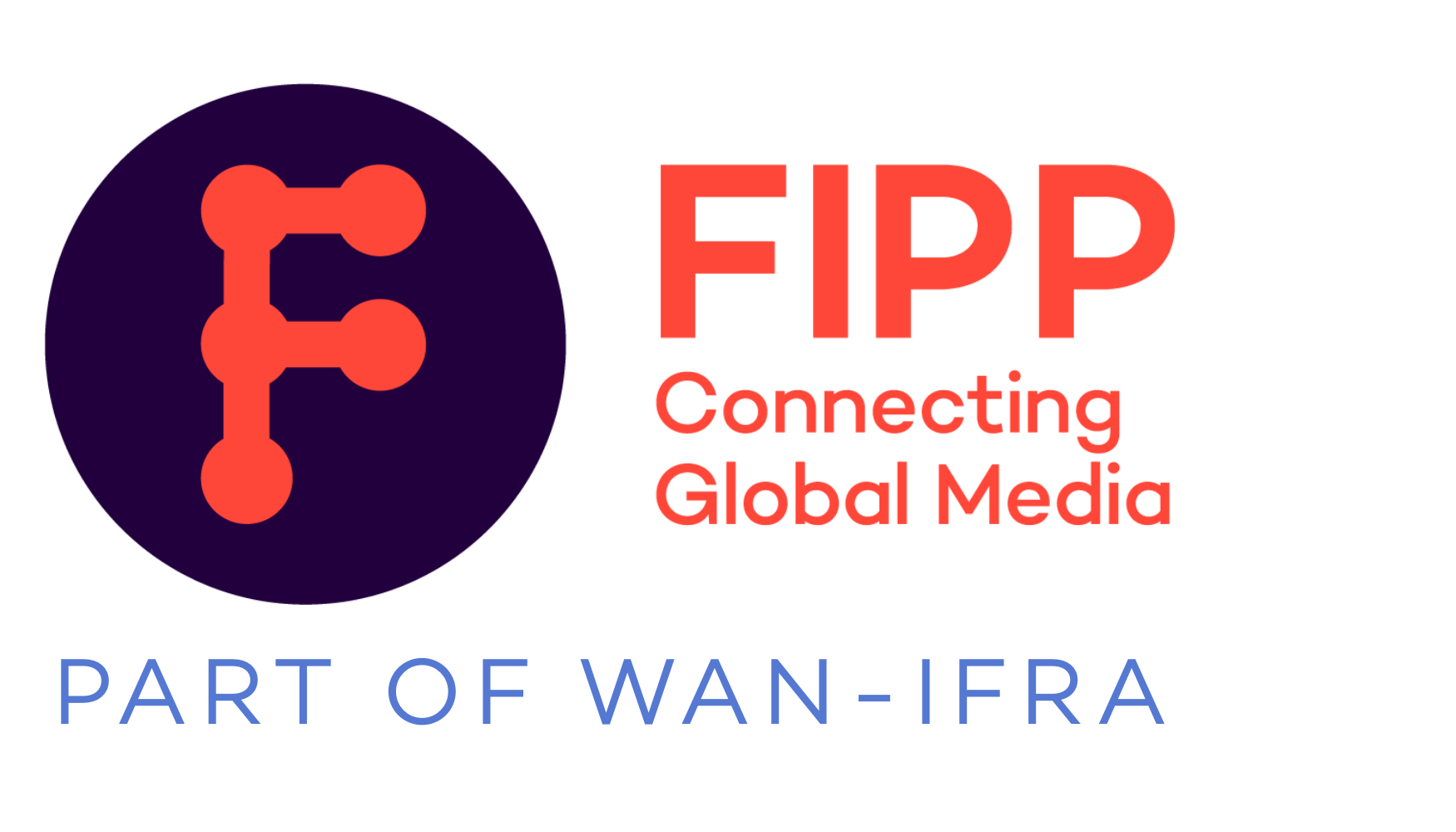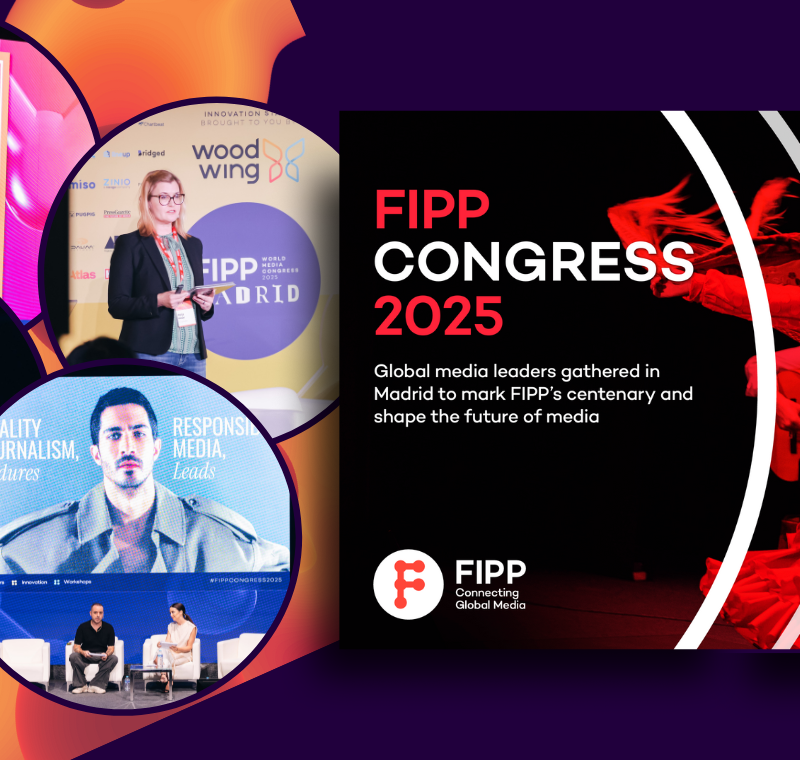Leading through change – former FIPP CEO James Hewes reflects on his journey with FIPP
“Oh, and there’s only about 50 grand in the bank, but don’t worry, there’s loads due in soon…” Those were the words that greeted me on joining FIPP, in September 2017. The struggle for cash was to be one of the defining features of my time in charge of this great organisation, not least thanks to a certain virus that, some two short years later, began to stir in China. But we’re jumping around a bit, let’s focus on the beginning.
I was appointed as CEO in late 2017, having spent the previous year running my own business and “filling in” as temporary CEO at The Art Newspaper. With two young kids to support, the offer of a permanent job – and one as prestigious as this – was too good to turn down.
I’d been involved with FIPP for around 15 years by this stage, having started off as a lowly delegate at WMM – World Magazine Marketplace as it was then known – in London sometime in the early 2000s. I had been working on the BBC’s international magazine expansion, which naturally drew me into FIPP’s orbit. I progressed steadily up the FIPP ‘ranks’, as an exhibitor, then a regular speaker at both Congress and DIS (Digital Innovators’ Summit), before joining the FIPP Board in 2015. So, I was extremely familiar with the organisation when I took over and was able to get up to speed very quickly.
I shared that familiarity with FIPP with my immediate predecessor, Chris Llewellyn, who had, uniquely, also been FIPP Chair before taking over as CEO. Chris had led the continued global expansion of the organisation that had been started by his predecessor, Donald Kummerfeld. Between them, they’d taken FIPP into markets such as India and China. We continued that good work, running events for the first time in markets such as Chile and South Africa. I always felt that being a global organisation meant that we couldn’t just focus on the traditional markets.
I guess you can say that the defining event of my time in charge was the coronavirus pandemic, and the rapid changes we had to make to ensure the organisation’s survival. But to focus on that would be to disguise the more fundamental changes that were taking place in the industry, which would have impacted FIPP regardless.
Firstly, towards the end of Chris’ tenure, there had been an increasing unwillingness on the part of national associations to get involved in the direct organisation of the FIPP Congress. This was understandable, after all most of these were facing the same pressures on finances and resources as FIPP. But it meant that the organisational burden – and financial risk – of Congress fell on FIPP in full. This was to lead to a fundamental change in our approach to this landmark event.
Then there was the ongoing change in the strategy and composition of the industry, resulting from the massive diversification of revenue streams that most of FIPP’s members were pursuing. Many preferred not to be called “publishers” and, in many cases, sought to distance themselves from their print heritage. This led to something of an identity crisis for the industry – after all, if we are not publishers, what are we?
Finally, there was the unprecedented level of disruption in terms of the companies and individuals involved in the industry. In the period leading up to Covid, M&A reached a peak, with huge deals such as TimeInc’s acquisition by Meredith, who were themselves then snapped up by DotDash. This led to radical changes in personnel at almost all of FIPP’s key members, and we had to spend a lot of time building relationships with entirely new management teams. Indeed, of the current FIPP Board, comprising around 35 Directors, only six of them remain from my first Board meeting in 2017.
We tried to address these issues by being flexible and, where possible, radical. A constant mantra was that our activity needed to reflect our members’ priorities, which led to things like the launch of our quarterly Digital Subscriptions Snapshot.
The FIPP Congress dates back to the origins of the organisation in 1925, hence this year’s centenary celebrations. In recent years, FIPP had also been running regional events, although these mostly disappeared after Covid. Pretty much the last of these was the FIPP Asia-Pacific event we ran in China, in 2019, in a city none of us had much heard of at that time, Wuhan…
The coronavirus pandemic accelerated the changes that the organisation needed to make to respond to the dramatic evolution that the industry was undergoing. We had to make the organisation smaller and leaner, which unfortunately meant saying goodbye to some long-standing and valued colleagues. We had to transition to a year of virtual events, which meant learning a whole new set of skills (at one point we ran something like 80 virtual session in 30 days), and relying on the goodwill of our members to support us through this difficult time.

We also decided to run Congress annually, to better reflect the rapid changes the industry continues to undergo, whilst also trying to make it more cost effective for both FIPP and those attending. This led to three fantastic years of the Congress in Cascais, the town where I grew up. The honour of being able to bring this fantastic event to my hometown, and the incredibly positive feedback we got from all who attended, is one of the proudest moments of my life.
I was lucky enough to work with four fantastic Chairs during my time at FIPP, and the support we got from both them and the Board throughout my time there was phenomenal. Some of the work we did together led directly to the talks which now see FIPP join forces with WAN-IFRA in a strategic alliance.
I have so many positive memories of FIPP, I’d have to write a book to tell them all. However, when I look back at my time there, I remember the fun and laughter we had while doing it, working with the fantastic team at FIPP, all of whom will remain my friends for the rest of my life.

FIPP WORLD MEDIA CONGRESS 2025
An unforgettable gathering that will shape the future of media. Join us in Madrid, Spain, from 21-23 October 2025.
>> SUPER EARLY BIRD rate ends 31st March.



























